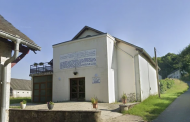Ali Abdel-Aal
One of the smallest countries in Western Europe, Belgium has become Europe’s biggest per capita source of jihadists fighting in Syria and Iraq.
According to data provided by Belgium’s former Interior Minister Jan Jambon on February 22, 2016, 451 Belgian citizens have been identified as jihadists.
Of these, 269 are on the battlefields in Syria or Iraq; 6 are believed currently to be on their way to the war zone; 117 have returned to Belgium; and 59 attempted to leave but were stopped at the border.
According to Jambon, 197 of the jihadists are from Brussels: 112 are in Syria while 59 have returned to Belgium. Another 195 jihadists are from Flanders, 133 are in Syria while 36 have returned.
At least 34 were killed and more than 200 wounded by a series of explosions that struck a Brussels airport and subway in March 2016. Daesh has since claimed responsibility for the attacks.
Also in November 2015, several mass shootings and a suicide bombing took place in Paris, claiming the lives of at least 132 people dead and 352 injured.
These attacks were launched from Syria and were planned by a French-Belgian cell.
Belgian officials described the Brussels attacks as the worst day in Belgium’s history since World War II, it revealed that Belgium had become a center of terrorism in Europe.
According to reports, more than 500 Belgians have left for Syria since 2012, twice the number of US citizens who joined terrorist organizations.
And things get more complicated in light of the difficulties the state faces in tracking down terrorists; Belgium could not arrest Salah Abdeslam, who was directly involved in the attacks in Paris on 13 November 2015, despite that he was hiding in a house in Sint-Jans-Molenbeek, Brussels.
Belgium is witnessing from time to time special threats in light of the return of the terrorists, and the country was also attacked by some targeting military or police personnel.
Belgium is witnessing from time to time threats of terrorists return. Moreover, the country also witnessed attacks against military and police personnel.
On August 25, 2017, a 30-year-old Belgian of Somali origin attacked soldiers with a knife, injuring a soldier. Also, two police officers and a man sitting in a car were killed in the Belgian city of Liège.
The suspected shooter was shot dead by police shortly after he took a woman hostage at a school in downtown Liège.
In August 2015, a gunman shot and stabbed some travelers on a high-speed train en route from Amsterdam to Paris via Brussels, and in May 2014, an armed man attacked a Jewish museum in Brussels, killing four people.
security forces arrested ten people belonging to the “Sharia for Belgium” group or “Sharia for Belgium”, which calls for the application of Islamic law in this European country, and as a result, the State Security Agency warned of a thousand Salafis threatening stability.
The authorities believe that this group’s activity extends outside Belgium, and that its name is associated with a number of terrorist attacks, including the Madrid attacks in 2004. It is active in recruiting European Muslims and sending them to Iraq and Syria to join Daesh. Its leader, Moroccan Fouad Belkacem, and 45 leaders were arrested, and they were tried on charges of supporting Daesh and recruiting youth for it.
A law issued on 30 July 2018 imposed the appointment of a person responsible for countering extremism within every municipality to develop the security approach.
Belgium has a population of ten million people and 5% of them—over 500,000—are Muslim. Muslims also constitute about 25% of the population of Brussels, the capital of the European Union. Over 300,000 Belgian Muslims, including over 160,000 Turkish nationals.








































admin in: How the Muslim Brotherhood betrayed Saudi Arabia?
Great article with insight ...
https://www.viagrapascherfr.com/achat-sildenafil-pfizer-tarif/ in: Cross-region cooperation between anti-terrorism agencies needed
Hello there, just became aware of your blog through Google, and found ...